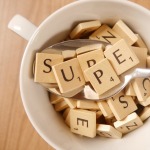 Expenses and Exempt Supplies
Expenses and Exempt Supplies
Expenses
Your business expenses can be deducted from your sales income before you calculate the tax that is due, either as income tax on the self-employed or corporation tax on companies. Most business expenses are deductible in this way, for instance your stationery, accountants fees, gas and electricity charges for your office/shop or factory. All the costs of purchasing the goods that you sell or that you process and then sell are deductible expenses. Some costs are not deductible against tax, either because they are not deductible at all (as stated in the tax legislation) or because the cost was incurred to buy a capital item; see our earlier blog on capital allowances for an explanation on capital items. Customer entertaining is never a tax deductible expense and neither is the cost of setting up your new company. If you are self-employed and you need to complete some training before you can start trading then this cost will not be deductible for tax. Just because the expense is not deductible for tax does not mean it is not a valid business expense; if an expense is for the business it can go through your business books (see bookkeeping).
Exempt supplies
Part of the language of VAT. Sales in VAT can be standard rated, reduced rated, zero rated or exempt. If a business makes exempt sales/supplies then it will not be able to deduct all the VAT incurred on its purchases when it completes its VAT Return. The most common exempt supplies are supplies of finance but this will not apply to most businesses. The most common supply that is exempt for small businesses is a supply of land i.e. property rental. See our blog on garden offices for more information on exempt supply of property.
If you have a VAT registered self-employed business and a buy-to-let property you should incorporate your business or take on a partner as you do not want a buy-to-let property owned by a VAT registered person.
